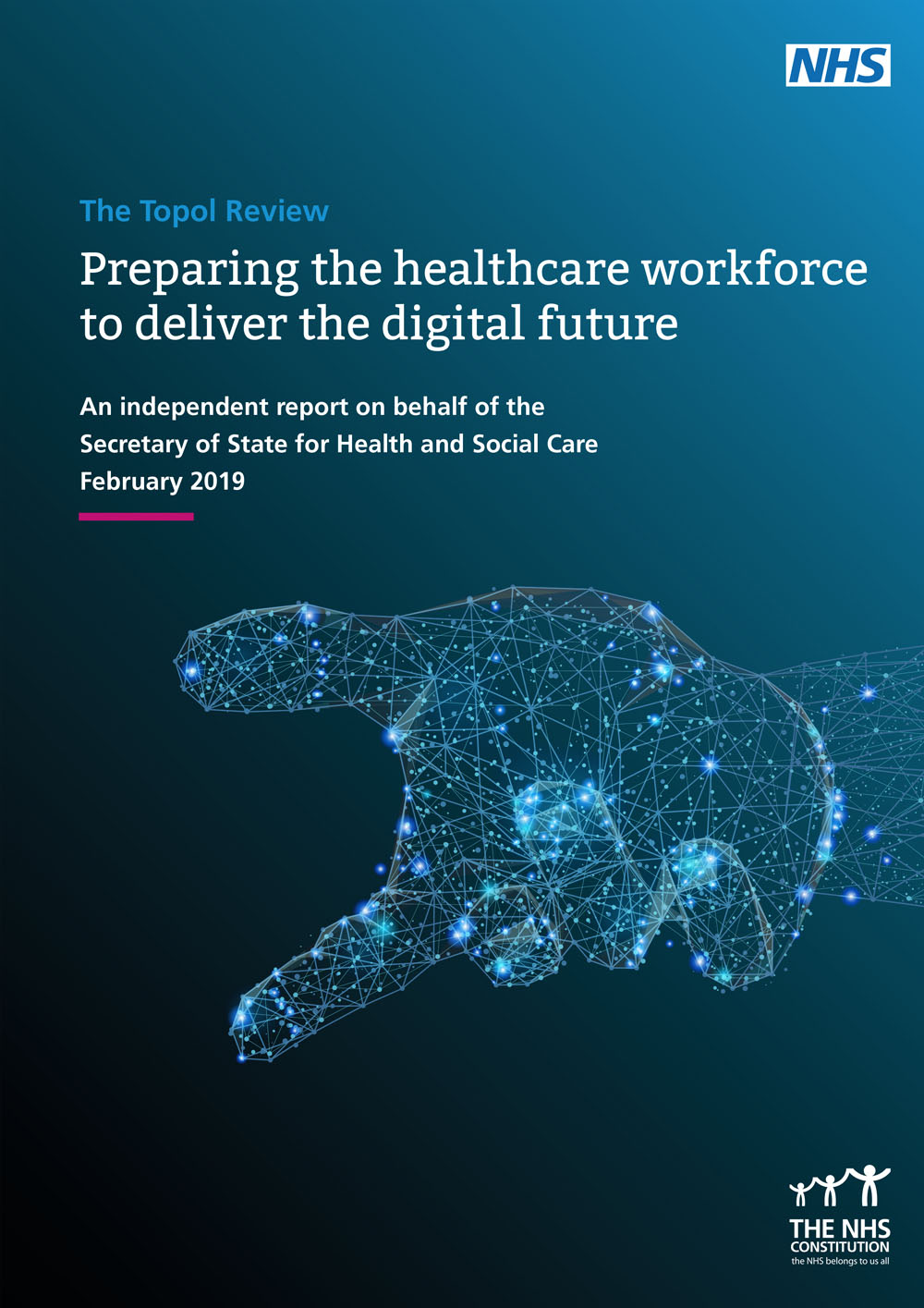Things to join...
I don't know where February has gone but already it is nearly time for the next Reading Group meeting. This month we are discussing Ben Elton's 'High Society' about the pervasive nature of illegal drugs within society. If you want to join us please contact the library for the link - we meet online on the first Wednesday of every month at 18:30 for about 1 hour. Our next book will be 'Once upon a River' by Diane Setterfield.
Things about digital technology...
Digital technology can support the NHS to deliver high quality specialist care more efficiently. To achieve these digital advances, the right environment for innovation, education and collaboration needs to exist. On the 24 March there is an event as part of National Health Executive's NHE365 Festival 'Achieving Digital Efficiency' - a topic in which has been a top priority during the global pandemic.Things online...
As well as Reading Group going online we have developed more of our training to be available in this way and this could be something we continue even after the pandemic. It is useful for people based away from the Acute site of the hospital and hopefully will also reduce the number of people not turning up for booked training.
We now run our popular Critical Appraisal Course online. Please email the library if you would like to participate. There needs to be a commitment from participants to engage with all three elements of the course.
Virtual Critical Appraisal Course (SCH employees only)
The course is in 3 parts and all 3 must be completed, a certificate is awarded on completion
Part 1 Course slides and workbook
Part 2 Article appraisal
Part 3 Microsoft teams meeting to discuss workbook answers and article appraisal
Things about Girls...
For over a decade, Girlguiding’s research has captured girls’ and young women’s lives, highlighting their views, experiences, and the challenges they face. From gender stereotypes to body image concerns, girls and young women continue to face unequal pressures and barriers to living confident and full lives. Now, as well as these, they are confronting the impact of the Covid-19 pandemic. It has radically changed their lives and opportunities and shaped their perspectives. Through this recent publication 'Back in lockdown: Girls’ and young women’s hopes and fears for the future', girls’ and young women’s voices reveal how they’re coping with the profound changes that have occurred in their lives over the past year. They tell us about the things they’re finding hard, what they’re concerned about and their hopes for the future. This research builds on the Girlguiding's previous survey with girls and young women in May 2020.
Things about SEN...
This House of Commons Library briefing sets out the system of support for children and young people in England aged 0-25 with special educational needs (SEN). The briefing provides an overview of the new system introduced in 2014, the transitional arrangements, and how the new system differs from that which preceded it. It also includes a brief history of the movement towards reform that preceded the 2014 changes, and information on the impact of the new system available to date.Things about carbs and fats...
A recent study in Nature Medicine was highlighted recently by NIH Research Matters. The amount and types of food available to the average person have changed over time. These changes are believed to contribute to the rise in obesity by promoting increased calorie intake. Excess weight can cause various health problems, including diabetes, heart disease, and stroke.
There has been a great deal of debate over what aspects of our food have promoted obesity. High carbohydrates are believed to result in large swings in your body’s insulin levels, which may cause increased hunger and calorie consumption. High-fat foods may promote increased calorie consumption because they contain more calories per bite and can leave you feeling less full.
In the research when on the low-fat diet, the participants ate 550 to 700 fewer calories per day than when on the low-carb diet. Despite the large differences in calorie intake, they reported no differences in hunger, enjoyment of meals, or fullness between the two diets.People lost weight on both diets, but only the low-fat diet led to a significant loss of body fat. The low-fat diet resulted in higher blood glucose and insulin levels compared with the low-carb diet. This is a concern because variable glucose levels can be a risk factor for coronary artery disease.
“Interestingly, our findings suggest benefits to both diets, at least in the short-term. While the low-fat, plant-based diet helps curb appetite, the animal-based, low-carb diet resulted in lower and more steady insulin and glucose levels,” Hall says. “We don’t yet know if these differences would be sustained over the long term.”
The researchers note that the study was not designed to make diet recommendations for weight loss. Results may have been different if the participants were actively trying to lose weight. Further, results may be different outside the lab, in which all meals were prepared and provided in a tightly controlled clinical environment. Factors such as food costs, food availability, and meal preparation constraints can make adherence to diets challenging.
Things about digital resilience...
NSPCC Learning has released a podcast looking at the NSPCC's InCtrl service, designed to prevent technology-assisted child sexual abuse by supporting children and young people to build digital resilience. The podcast discusses: concerns that lead to children being referred to InCtrl; how practitioners work with young people on their online behaviour; the importance of involving parents and carers; and how children and young people’s views have been incorporated into the development and implementation of the service. Listen to the podcast or read the transcript : Building children and young people’s digital resilienceThings to make...
A beautiful spring-like day today but still cold. So a perfect meal would be this vibrant Green pesto minestrone which is really easy to make.

















































